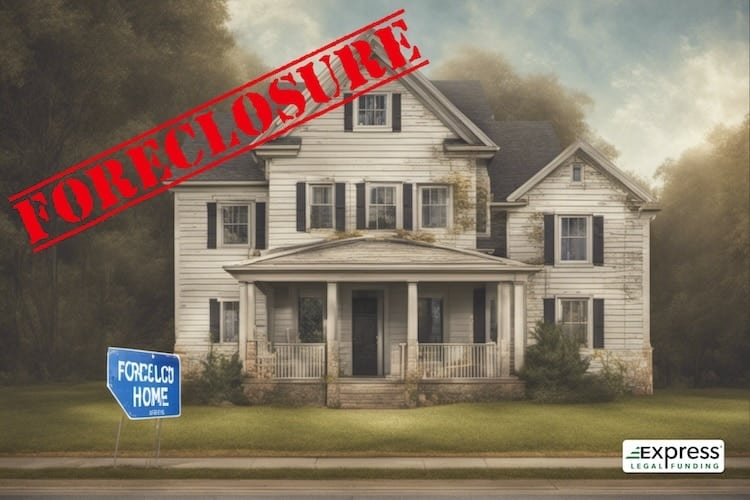
Welcome! Before we begin this in-depth article about lawsuit loans and pre-settlement funding, we want to establish that there is a distinction between the two types of financial instruments.
We strive to delineate and explain the differences and similarities between the two.
For auto accident cases: People often use lawsuit loans and car accident loans interchangeably.
As always, we encourage you to speak to your attorney to hear what advice they can provide you with, as everyone’s situation (and personal injury case) is unique to them. We take this matter seriously.
With that said, let’s continue by reviewing the problems plaintiffs face that make lawsuit loans an essential financial relief option for so many people throughout the litigation process!
FAQs About Lawsuit Loans For Pending Claims
Lawsuits are lengthy ordeals that take time, effort, and money. More often than not, they are mentally and emotionally draining as well, which makes the challenge of being short of money even worse and potentially dire.
One of the most common types of claims that is virtually synonymous with this concept is personal injury lawsuits.
Regularly, the suits involve an injured plaintiff who has been too hurt to work and is suing a defendant for the loss incurred due to an injury-causing accident.

Understandably, missed work, unforeseen costs and sudden medical treatment can make it difficult to pay your bills and will lead you to search for a financial lifeline.
That is why thousands of people search for “lawsuit loans” every month in the United States, which is precisely where we, as a top legal funding company, can come in to help plaintiffs while they and their attorneys fight for the fair settlements they deserve.
Differences Between Lawsuit Loans and Pre-settlement Funding
Like everything else available online today, there are many ins and outs about pre-settlement lawsuit loans and consumer legal funding that you need to know.
Learning these facts and cutting through the misinformation makes a crucial difference and will help you identify and make the best decision for you.
This knowledge is the ultimate form of protection for people who are on the hunt for the best and fairest legal funding options.

Good news for you: If this sounds like you and your situation and you need money now, not just when your claim comes to an end and your settlement check arrives in the mail, you have found the leading guide about what lawsuit loans are.
By reading this guide written by experienced legal funding industry experts, you will gain an understanding of what lawsuit loans are and are not, how much they cost, what to avoid (i.e., application fees), and much, much more!
Of course, learn how to apply for one and improve your chances of getting approved fast!
What Is a Lawsuit Loan? [Video]
Although lawsuit loans can be actual loans (in some states), most often, people incorrectly use the wording as a catch-all term for legal funding or pre-settlement funding. When most injury and accident victims say they want to apply for lawsuit loans, they are actually referring to a unique financial tool.
Recourse vs. Non-Recourse Loans
This financial tool is a non-recourse cash advance to plaintiffs and claimants involved in a lawsuit. The definition of a non-recourse debt, according to the IRS, is:
A non-recourse debt (loan) does not allow the lender to pursue anything other than the collateral.
The claim’s potential proceeds of which the advance of funding was made against is the non-recourse debt for pre-settlement funding.
Continuing with taking that concept a step further, this is why legal funding is not a loan from a lawsuit loan company and is why the same non-recourse debt rule about not making the person who received the advance personally liable for paying it back applies.
The Money Is a Non-recourse Advance On Your Pending Settlement (Lawsuit Proceeds)
The funds are risk-free cash advance on a pending settlement since, by not being a recourse loan between a lender and borrower, there is no risk for the client to take on debt, and is the reason why the well-known line, “if you lose your case, you owe us nothing” is the fair and factual truth.
This type of financing is specifically designed to help plaintiffs cover their living expenses and other non-case-related financial obligations throughout the litigation process, and this is why people search online for lawsuit loans.
They typically want to locate the website of a legal funding company that can provide them with a non-recourse advance of funds.
Many plaintiffs find themselves in financially frantic situations while their cases are pending and require financial support and relief to help them get by.

The exact amount of a lawsuit loan or legal funding is based on the case’s merits, which include the likelihood of the claim reaching a successful outcome.
Credit Scores and Checks Are Not Approval Factors
Even for recourse lawsuit loans, the funders are not concerned with the applicant’s credit score, which is not the case for traditional loans.
Regardless of whether it is considered a loan or non-recourse funding, the case’s value can be defined as the current estimated value of the settlement or anticipated court verdict the plaintiff and their attorney expect to receive.
Reason Why Lawsuit Loans Exist
Ultimately, the primary purpose of lawsuit loans and pre-settlement funding is to alleviate the financial burden plaintiffs frequently have to endure during the long and drawn-out legal process.
Insurance Company Personal Injury Case Strategy
The fact is lawsuits can take many months to even several years to resolve, which is to the advantage of and a tactic used by insurance companies who want to avoid providing fair compensation to injured plaintiffs.
The concept is the longer the case goes on, the worse the financial hardship situation can be for injured and damaged plaintiffs.
It’s more time under duress, which involves struggling to pay for sudden medical bills, monthly rent, and other daily living expenses. This is only made worse when people are hurt, as they often have to miss work.
All of these unexpected costs and surprise bills are major reasons why plaintiffs have to file lawsuits in the first place.
Benefits of Getting an Advance Against Your Claim
All the more so, the cash infusion from applying and getting approved for a lawsuit loan or pre-settlement funding is a solution to this situation.
It empowers plaintiffs to obtain immediate cash in hand to cover crucial costs for themselves and their families, giving them the ability to stay focused on building their case, which also means not rushing the lawyer representing them.
Another benefit people may not realize is that alleviating the additional financial stress of the injured and damaged plaintiffs can help them recover higher amounts of money from the defendant come settlement time.

Not rushing a claim and taking time to undergo all the necessary medical treatment generally results in more significant financial recoveries.
It is worth repeating that in most cases, using the term lawsuit loan and characterizing it as not a traditional loan is inaccurate, as the repayment is contingent upon there being a successful lawsuit outcome, which includes there having to be a successful financial recovery.
One sentence summary for how lawsuit funding works: The legal funding cash is advanced non-recourse, and it is not a recourse lawsuit loan, so plaintiffs are not responsible for paying the funds back if they lose their case (have no recovery), which means the money is theirs to keep for all time with no strings attached.
How Long Does It Take To Obtain a Lawsuit Loan?
The total amount of time it takes to get an advance on your lawsuit depends on a number of factors. However, the most common duration for how long it takes to obtain a “lawsuit loan,” as advertised among legal funding companies, is 24-48 hours. The faster, the better.
When it comes to us at Express Legal Funding, it can be the same day due to us being direct funders and having access to same-day ACH.
However, no company should promise same-day funding since we can’t disburse funds until after your attorney signs the Attorney Acknowledgement portion of the overall agreement.
Generally, we recommend finding a company that can deliver pre-settlement funding in less than 24 hours of approval.
Can I Get a Same Day Pre-settlement Loan?
Yes, it is possible to get same-day pre-settlement funding in your bank account the day you apply. Although not the majority of the time, Express Legal Funding continues to accomplish same-day funding.
For all companies to be able to provide same-day delivery, it takes a number of details to fall into place, which generally include the following:
- The company has to offer same-day ACH or Western Union.
- The plaintiff has to apply early in the day.
- The plaintiff’s attorney quickly responds to the underwriter’s brief questions.
- The client signs the contract, and then the Acknowledgment is signed by their lawyer before the ACH deadline. – On many occasions, CashApp has deposited funds in client accounts even after the ACH deadline elapses. Still, that last movement of funds is out of our hands.
The best way to maximize your chances of getting a same-day pre-settlement loan or funding is by applying early and facilitating the process.

You can streamline it by giving a few simple details about your case to the legal funding company and ensuring your attorney is made aware of your request and is ready to sign the Attorney Acknowledgement when the DocuSign hits their email inbox.
How Do Lawsuit Loans Work?
The steps involved in how lawsuit loans and non-recourse funding sought by plaintiffs during a pending lawsuit work as follows:
Lawsuit Funding and Pre-settlement Loan Timeline
- Application: A plaintiff applies for the funding by contacting a pre-settlement funding company. This can be handled over the phone or via an online application. Some companies ask for more information than others. Often, during the initial intake phone call, the person applying will let the company know how much money they are requesting.
- Underwriting and review: The company analyzes the case details provided and will likely contact the attorney or law firm handling the case for further details and search for the claim’s status online via a software platform like Westlaw. The strength of the case, liability, and potential damages are primary considerations for the lawsuit funding company.
- Approval: Once the lawsuit funder has determined the amount of money they can approve the client for, they will let them know, which is when a client can have the opportunity to decline the offer due to no longer being interested or wanting to try their chances of getting a larger amount of funds from another company. (Typically, this is not a worthwhile use of time since it will make the process start over with another funder, especially since they will be making the same calculations about the case.)
- Funding agreement: When the client accepts the offer, the legal funding company will create the contract and send it to them to review and sign, at which time the signed agreement will get sent to the attorney, who will review and sign their acknowledgment before it makes its way back to the company who will also sign.
- Pre-settlement money gets sent: The lawsuit loan company will send the funds to the plaintiff who signed the funding agreement. The delivery method commonly can be done via a direct deposit into their bank account or a cashable check sent overnight (i.e., FedEx).
- Repayment after the case is settled or won: For both lawsuit loans and non-recourse funding, the payment of the amount owed to the legal funding company is due after the case is resolved. Similar to how personal injury lawyers pay themselves and the medical treatment providers before the client gets their share of a settlement, so too is the situation for pre-settlement funding companies, which marks the end of how lawsuit loans and funding work.
(Please note that for lawsuit loan contracts, payment is required even when the plaintiff loses. However, that does not mean lawsuit lenders will try and collect from borrowers.)
How Much Do Lawsuit Loans Cost?
The exact cost for borrowing a lawsuit loan or getting an advance of legal funding via a non-recourse purchase agreement will vary both on the applicable laws and the particular company’s rate and fee structures.
Lawsuit Loan Cost:
Generally, in states where lawsuit loans are the correct wording, the cost will be more uniform and reflect the state’s consumer lending laws.
For example, licensed lenders are required to follow certain laws based on the Truth In Lending Act (TILA), which means that there may be a cap on how much the fee(s) can be and how the interest rate is allowed to be charged.
Consumer Legal Funding Cost:
Even where regulated, the cost of consumer legal funding will vary from one company to the next, as there are many ways the different legal funding companies charge.
What Can I Spend My Lawsuit Loan Funds On?
You can spend the money you receive from a lawsuit loan or pre-settlement funding on any product or service you want, except to pay your attorney representing you on your claim and case expenses (i.e., expert witnesses or deposition costs).

Not paying for the cost of the lawsuit is how the Doctrine of Champerty and Maintenance is avoided. Champerty is an antiquated concept to prevent people from financially backing a lawsuit and has been abolished in many states.
It helps plaintiffs not get behind and avoid overdue payments and bills. People regularly use the loan funds they receive for their potential lawsuit settlement on the following:
- Food
- Rent
- Electric bill
- Water and gas
- Gasoline for your motor-vehicle
- Life insurance premiums
- Mortgage payments
- Credit card payments
- Car replacement or repairs
- Out-of-pocket medical bills and medication
- Child support payments
Are Lawsuit Loans Regulated By Laws?
The federal government doesn’t regulate lawsuit loans and consumer legal funding, although some states have established regulatory measures to safeguard individual rights and protect consumers.
Examples of states with laws about pre-settlement funding and/or lawsuit loans include:
States That Regulate Consumer Legal Funding and Lawsuit Loans:
- Arkansas – Inhibitive maximum interest rate (Consumer Lawsuit Lending A.C.A. § 4-57-109)
- Illinois
- Indiana
- Maine
- Missouri (Lenders can get a loan license or a consumer legal funding company license).
- Nebraska
- Nevada
- Ohio
- Oklahoma
- Tennessee – Restrictive rate fee cap (Tennessee Litigation Financing Consumer Protection Act)
- Utah (Utah Litigation Funding Practices Act)
- Vermont
- West Virginia – Unrealistic rate cap and payment schedule (Litigation Financier Requirements)
- Wisconsin
It is recommended to speak to your attorney to understand the laws of your jurisdiction and other state laws, which can affect whether you can qualify for a lawsuit loan.
Although not regulated by state authorities, several states had court decisions over the years that determined consumer legal funding is not a loan. This is the crucial basis for why legal funding companies are confident they are following the laws when they provide non-recourse funding to clients in these particular states.
They can breathe easy knowing the courts have rulings that make it so they don’t have to concern themselves with the risk of being blindsided by the government saying that the product needs to be a regulated loan.
States With Court Precedent or Actions Supporting Consumer Legal Funding
- Florida
- Georgia
- Minnesota
- Mississippi (Mississippi Attorney General announcement about Workers’ Compensation funding)
- Texas (Javier Garcia v. Texas Cable Partners, L.P.)
If not for these critical court decisions, legal funding may not have been viable due to usury laws about interest rate caps that are way too low for it to be a viable financial product that would cause funders to lose more than they could feasibly make.
That, in turn, would negatively impact plaintiffs in dire need of financial, as they would be unable to obtain financial relief money from their lawsuits.
Usury Laws Are Not Applicable
The remedy in these unfortunate situations to make this financial help available to residents of the particular state is for state legislators to pass an act that puts a new law(s) into place that defines consumer legal funding as a unique financial product, distinct from a recourse loan.
That importantly means it will not be subject to the state’s usury laws, which are impractical for pre-settlement funding.
What Types of Cases Qualify For a Loan Against Settlement?
Many types of civil lawsuit cases can qualify for lawsuit loans, with personal injury and car accident claims being the most common. The following list includes some of the common cases people can apply for and qualify to receive lawsuit loans.
Civil Lawsuit Types That Qualify:
- Personal Injury
- Car accident lawsuits
- Dram Shop liability law claims
- Premises liability
- Slip and fall incidents
- Defective knee-replacement lawsuits
- Medical malpractice claims
- Gross negligence cases
- Workers’ Compensation
- Wrongful termination
- EEOC claims, such as discrimination based on race or age.
- Whistleblower and Qui Tam lawsuits (less common)
Are Lawsuit Loans Expensive?
Yes, on average, lawsuit loans and non-recourse legal funding are expensive, with non-recourse advance funding being the more expensive of the two.
The concept of expensive is relative, as, in general, some products have higher markups and cost more than others, which has to do with the nature, risk, and market size.
The reason lawsuit loans are classified as expensive is that people are comparing them to traditional loans, such as home mortgages.
Mortgages vs. Recourse Lawsuit Loans
Except there is a big difference between the two. A mortgage is classified as a traditional loan because it uses tangible collateral (and has set government parameters).
For example, the lender, often a state-chartered bank, places a lien on the home or other real estate for which the loan is for.

The benefit of collateral is that it enables lenders to recover the money owed for the loan made to the borrower by foreclosing on the property, which regularly involves selling it at auction.
Additionally, a benefit of the home being used as collateral is that it acts as an incentive for the borrower to make the required payments, since they don’t want to lose their home.
Lenders want borrowers to prioritize repayment, and the collateralization of real estate is a way to accomplish that.
A Lawsuit Loan Has No Collateral
With a lawsuit loan, there is no collateral. That makes it an unsecured loan, which, in general, is more risky for the lender and increases the chance of their not getting paid back, which can result in a total loss.
The inherent increased risk of the financial tool is why pre-settlement loans are expensive. The higher cost compensates for the increased lender risk.
This is all the more so the case with non-recourse lawsuit funding (not a loan at all) since payment is tied to the recovery of the claim.
If the plaintiff loses the suit, they get to keep the funds advanced to them, which, alongside other intangible factors, makes legal funding extra risky, necessitating higher interest rates, etc.
Reason For High-Interest Rates On Pre-settlement Loans
To put it in a colloquial term, lawsuit loans, and pre-settlement advance funding have an increased cost, which is essentially hazard pay. The nature of the product necessitates the funding company to charge enough to cover their costs to be able to stay in business.
The following three states implemented laws causing this issue:
States With “Bad Laws” Regulating Lawsuit Loans [Infographic]
- Arkansas
- Tennessee
- West Virginia

These states’ legislators passed bills targeting legal funding with unrealistic rate caps.
That quickly resulted in lawsuit funders not making pre-settlement advances available to those states’ consumers.
The laws act as pseudo-bans on legal funding, which can hurt injured plaintiffs in need by forcing them to take out loans with interest rates they can’t afford to pay back.
So, if a resident of Arkansas goes online to apply for a lawsuit loan, they will not be able to borrow one as a result of the unfair laws that hurt plaintiffs who need financial support while their lawsuit is pending.
Ultimately, the point that needs to be made is just because something is expensive does not mean it is “a rip-off” or a bad deal.
Taking this concept a step further, we can look at the concept of price gouging, which has nothing to do with the total dollar amount and instead with unreasonably marking up the cost of an item well above the going rate.
A classic example of this is water bottles being sold for many multiples more before a hurricane when people are buying up everything they can to prepare. The point is that $6 by itself is not a lot of money, but it’s a lot of money to pay for a single 16.9 fl oz water bottle.
The same concept applies to whether a lawsuit funding company’s rates are fair or not.
Keep this in mind when you are searching for low-cost pre-settlement funding, including the discussion with your no-win, no-fee lawyer on whether they think it is an advisable financial option for you or if you are better off waiting until your case is resolved.
Lawsuit Loans Are Intended To Help With Essentials
If you are considering getting an advance on your claim just because you want to have some extra cash for a splurge expense, that might not make the most financial sense.
For instance, it’s hard to justify that a 65″ flat-screen TV or court seat tickets at your favorite basketball game are essential purchases.
When You Need Money During Your Pending Lawsuit
But, if you need money now and can’t wait for your case to be settled or won to be able to stay financially afloat, the higher cost of a lawsuit loan and legal funding makes sense, is fair, and can make a crucial difference.
Apply For a Lawsuit Cash Advance From Express Legal Funding

We are confident that you now have a better understanding of lawsuit loans because you read this resource guide, and we look forward to helping you apply for the lawsuit funding you need now.
Apply Now: Legal Funding Application!
You can also call us to apply and hear about your legal funding options anytime, 24/7. We make it a fast and easy process.
